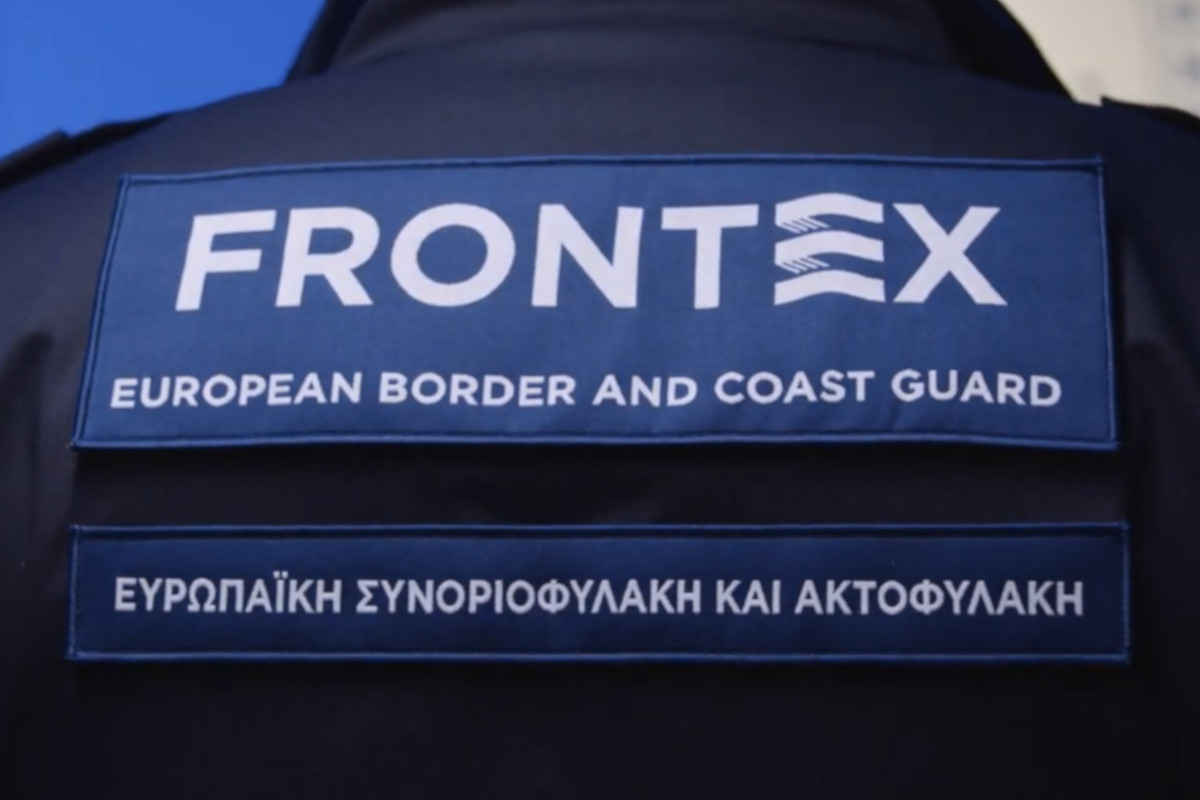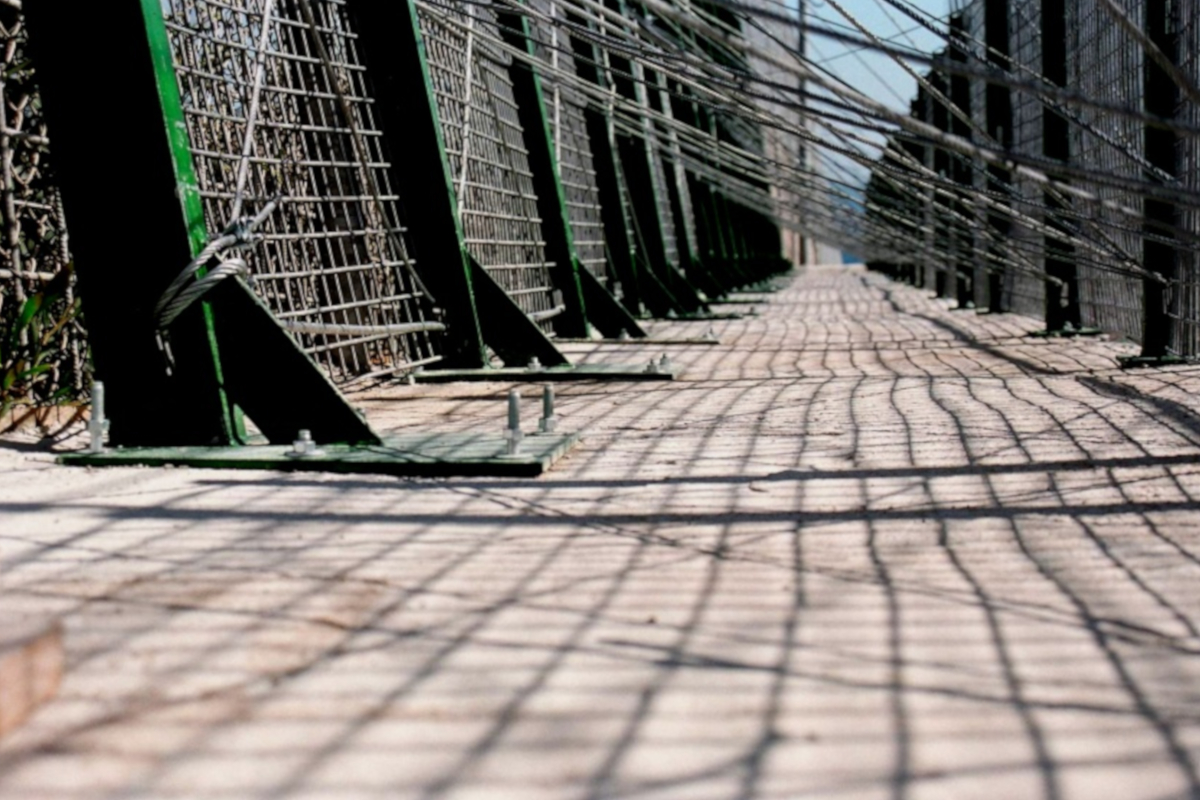Evaluation of the 2019 Frontex Regulation: Statewatch submission to the European Commission call for evidence
Topic
Country/Region
03 October 2022
We made a brief submission to the European Commission's call for evidence to inform the evaluation of the 2019 Frontex Regulation. The evaluation is due to be carried out between December 2022 and October 2023 by an external consultant. Our submission highlights issues concerning fundamental rights, transparency and accountability.
Support our work: become a Friend of Statewatch from as little as £1/€1 per month.
 Statewatch produces and promotes critical research, policy analysis and investigative journalism to inform debates, movements and campaigns on civil liberties, human rights and democratic standards. We began operating in 1991 and are based in London.
Statewatch produces and promotes critical research, policy analysis and investigative journalism to inform debates, movements and campaigns on civil liberties, human rights and democratic standards. We began operating in 1991 and are based in London.
- The timeline of the call for evidence
While we welcome the opportunity to submit evidence in advance of the forthcoming evaluation, we wish to stress that the timing and length of the period in which submission can be made (just one month, at the start of the ‘political year’) seems designed to discourage submissions. This is particularly problematic for civil society organisations and other groups that may take a more critical view of EU border management policies, as they tend to be substantially under-resourced and thus are likely to have had difficulty in meeting the deadline. We have been in contact with multiple other organisations and individuals who would have liked to file a submission to this consultation, but were unable to do so due to the short deadline.
- Considerations for the evaluation of the Frontex Regulation
We wish to underline that we do not believe that there is a need for any revision of the Frontex Regulation. From the evidence available, it appears that the agency’s leadership has either been unable or unwilling to fully implement the requirements of the 2019 Regulation, for example through the failure to recruit 40 fundamental rights monitors by December 2020. While that failure is likely (at least in large part) a symptom of the dismissive attitude of the former Executive Director towards fundamental rights requirements, the fact that there are insufficient monitors available to the agency also increases the likelihood of its further involvement in fundamental rights violations. Multiple reports have made recommendations that would increase the compliance of the agency with its fundamental rights obligations,[1] and the priority should be to ensure the implementation of those recommendations before any further legislative reform is considered. At the same time, one of those reports – that produced by OLAF – should be made publicly available, to facilitate an informed public and political debate on the activities and functioning of the agency.
- Specific points with a view to informing the evaluation
The following points are submitted with regard to specific articles of the 2019 Frontex Regulation.
Article 10 – Tasks of the European Border and Coast Guard Agency
Article 10(1)
(a) monitor migratory flows and carry out risk analysis as regards all aspects of integrated border management
The evaluation should:
- Examine whether Frontex's risk analysis model sufficiently incorporates a fundamental rights perspective, given that the assessment of the “risks” and “threats” for the EU’s external borders undertaken by the agency appear to prioritise border security over other concerns, e.g. the protection of the fundamental rights of migrants, in particular vulnerable groups; and ensuring access to the international protection procedure.
(g) assist Member States in circumstances requiring increased technical and operational assistance at the external borders by coordinating and organising joint operations…
(h) assist Member States in circumstances requiring increased technical and operational assistance at the external borders by launching rapid border interventions…
(i) provide technical and operational assistance to Member States and third countries in accordance with Regulation (EU) No 656/2014 and international law, in support of search and rescue operations…
(j) deploy the standing corps in the framework of border management teams, migration management support teams and return teams…
The evaluation should:
- Examine the extent to which information shared with member state or third country authorities as a result of surveillance operations – for example, aerial surveillance in the Mediterranean – facilitates human rights abuses, e.g. by handing people over to the authorities of states where human rights standards cannot be guaranteed (in particular, via cooperation with the Libyan Coast Guard).[2]
- Examine the extent to which existing fundamental rights monitoring activities are adequate or sufficient, in particular given the extensive accusations of the involvement or knowledge of Frontex in pushbacks,[3] and the fact that there are multiple credible allegations of Frontex officials being involved in violence in third countries in which they have no authority to operate.[4]
(m) within the framework of the migration management support teams at hotspot areas:
(i) deploy operational staff and technical equipment to provide assistance in screening, debriefing, identification and fingerprinting;
The evaluation should:
- Examine the extent to which Frontex's debriefing activities are compliant with relevant national and international legal frameworks, in particular regarding procedural rights such as the right to a lawyer.[5]
(ad) follow high standards for border management allowing for transparency and public scrutiny in full respect of the applicable law and ensuring respect for, and protection and promotion of, fundamental rights
In order to meet this requirement, Frontex should:
- Publicly list all active operations, their general areas of operation and the member states participating in them.
- Increase the level of transparency over the Africa-Frontex Intelligence Community and its activities, in particular given that Frontex does not have any formal working arrangement with the majority of participants.[6] Any other such informal groups should be subject to the same, increased level of transparency.
- Ensure that the Fundamental Rights Officer and their staff are able to make recommendations regarding cooperation with third countries, given the appalling lack of respect for human rights in some of the countries with which Frontex already cooperates, whether on a formal or informal basis.
- Ensure the recruitment of a sufficient number of fundamental rights monitors that are able to undertake their tasks independently, impartially and without any interference from other staff within the agency.
- Ensure that all return flights coordinated or organised by the agency have at least one monitor on board, in order to meet the legal requirement for an effective forced returns monitoring system.[7]
- Ensure that Serious Incident Reports are made public – with any appropriate redactions and, if necessary, a time lapse – in order to allow post-facto scrutiny of the agency’s role and response to such incidents.
Furthermore, the evaluation should:
- Examine whether and how Frontex has met the commitments made in response to the European Ombudsman’s inquiry on ensuring respect for fundamental rights in joint operations for the forced return of irregular third-country migrants.[8]
Article 111 – Complaints mechanism
- The Agency shall, in cooperation with the fundamental rights officer, take the necessary measures to set up and further develop an independent and effective complaints mechanism in accordance with this Article to monitor and ensure respect for fundamental rights in all the activities of the Agency.
The evaluation should:
- Examine the functioning of the complaints mechanism in order to assess its independence, effectiveness, and ability to provide an effective remedy to complainants. This should include an assessment of both the rules implementing the complaints mechanism and how that mechanism functions in practice.[9]
Article 114 – Transparency and communication
- The Agency shall be subject to Regulation (EC) No 1049/2001 when handling applications for access to documents held by it
The evaluation should:
- Examine the extent to which Frontex has complied with the Ombudsman's decision in case (2273/2019/MIG) and Frontex's commitments in response to that Decision. As it stands, the agency has committed to increasing proactive transparency efforts on paper, whilst decreasing actual transparency in practice.[10]
Examine the extent to which the exclusion of non-EU citizens from making access to documents requests is hindering transparency over the agency's operations, in particular regarding those countries in which Frontex operations are taking place, or with which Frontex is cooperating (e.g. members of the Africa-Frontex Intelligence Community, states with which Frontex has a cooperation agreement of some kind).
[1] For example: those produced by the agency’s own Consultative Forum on Fundamental Rights, the European Parliament Frontex Scrutiny Working Group report, or the as-yet unpublished OLAF report.
[2] https://www.statewatch.org/observatories/immigration-and-asylum-in-europe/2021/eu-crimes-of-the-european-border-and-coast-guard-agency-frontex-in-the-central-mediterranean-sea/
[3] https://www.statewatch.org/observatories/frontex/frontex-under-scrutiny-inquiries-and-investigations-november-2020-onwards/full-text-of-the-european-parliament-scrutiny-group-report-on-fundamental-rights-violations/
[4] https://www.statewatch.org/news/2021/june/frontex-confronted-with-allegations-of-violence-in-north-macedonia/
[5] https://www.statewatch.org/analyses/2022/questioning-the-interviewers-frontex-s-covert-interrogations-at-the-spanish-southern-border/
[6] https://www.statewatch.org/news/2022/september/africa-frontex-intelligence-community-participating-agencies-named/
[7] https://www.statewatch.org/news/2021/november/eu-deportations-at-record-levels-as-frontex-foresees-an-unprecedented-number-of-post-pandemic-removals/
[8] https://www.ombudsman.europa.eu/en/doc/correspondence/en/61415
[9] ‘The complaints mechanism: improved but insufficient’, https://www.statewatch.org/deportation-union-rights-accountability-and-the-eu-s-push-to-increase-forced-removals/frontex-the-eu-s-deportation-machine/deportations-rights-and-responsibilities/
[10] https://www.statewatch.org/news/2022/may/eu-disappearing-documents-frontex-s-transparency-efforts-fall-short-of-requirements/
Our work is only possible with your support.
Become a Friend of Statewatch from as little as £1/€1 per month.
Spotted an error? If you've spotted a problem with this page, just click once to let us know.
